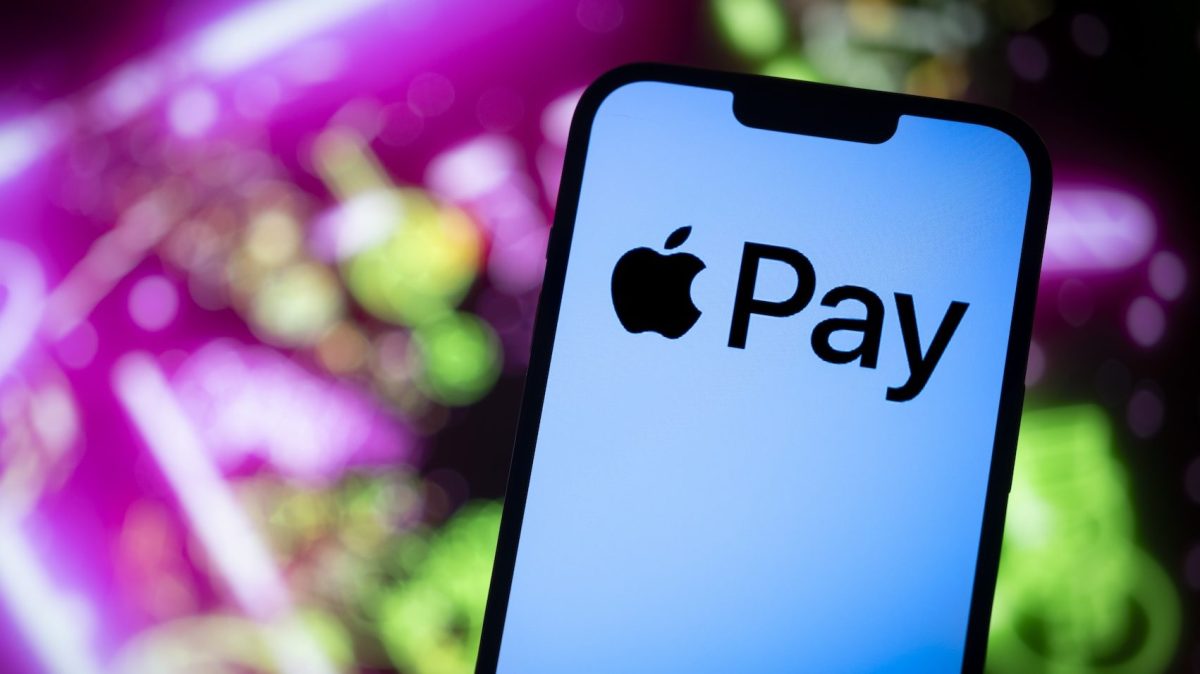Business
DOJ’s Apple antitrust case neatly aligns with EU on one key point: NFC and mobile payments


As Apple faces down the barrel of a U.S. Department of Justice’s (DOJ) antitrust lawsuit, one might assume that references to the Cupertino company’s existing anti-competitive headwinds in Europe would be peppered liberally throughout the DOJ’s complaint — just for a little extra context and moral support, if nothing else. But Europe is barely even mentioned.
The one time that Europe is explicitly mentioned, however, is in relation to Apple’s grip on digital wallets, NFC and mobile payment technology within its iOS ecosystem.
For context, the EU filed charges against Apple in May 2022, concluding that Apple “abused a dominant position” around mobile wallets by preventing rival services from accessing the iPhone’s contactless NFC payment functionality. At the start of this year, Apple went some way toward appeasing European regulators by proposing to allow third-party mobile wallet and payment services to finally access NFC on iOS free of charge, circumventing Apple’s own payment and wallet services. With those changes now in motion, theoretically at least, the DOJ wants in on the action.
In a complaint filed in the U.S. District Court of New Jersey, the DOJ agreed with the E.U.’s assertion that Apple unfairly favors its own mobile payment tech, giving third-party developers little choice but to play ball. Specifically, it says that Apple’s “complete control” over tap-to-pay transactions hinders innovation and bolsters its existing monopoly.
The filing notes:
There is no technical limitation on providing NFC access to developers seeking tooffer third-party wallets. For example, Apple allows merchants to use the iPhone’s NFC antenna to accept tap-to-pay payments from consumers. Apple also acknowledges it is technically feasible to enable an iPhone user to set another app (e.g., a bank’s app) as the default payment app, and Apple intends to allow this functionality in Europe.
This solitary reference to Europe tells us something about the distinctions between two jurisdictions trying to keep a major platform controller in check.
Categories
The DOJ’s complaint around digital wallets forms part a focus on five broad categories. One of these is so-called “super apps,” which the DOJ says Apple has roadblocked due to the fact that they are “fundamentally disruptive” to Apple’s own app ecosystem, given that they would allow developers to present multiple features and mini-programs in a single app.
Then there is cross-platform smartwatch compatibility, which the DOJ says Apple impedes by restricting certain features from third-party smartwatch makers. And cross-platform messaging has also earned a place on the list of complaints, with the DOJ arguing that Apple “protects its smartphone monopoly” by making iMessage iOS-only while also degrading other cross-platform messaging apps that are available. It also mentioned the different colored “bubbles” that iMessage sends out depending on whether the recipient is on iOS or Android.
It’s worth noting here that while Europe did mull forcing Apple to make iMessage interoperable with other third-party messaging apps, it decided against it.
Elsewhere, the DOJ also accuses Apple of preventing developers from offering cloud gaming apps, as this would mean that developers could create games that don’t require powerful hardware such as the iPhone, instead using remote servers to “stream” the games to a device — while bundling multiple games in a single downloadable app.
Apple did in fact announce back in January that it would allow game-streaming services such as Xbox Cloud on iPhones, but the DOJ says that Apple still makes it too onerous for developers looking to monetize their games, for instance by requiring them to use Apple’s own payment system and requiring design overhauls specifically for iPhone. The complaint reads:
Apple’s rules and restrictions effectively force developers to create a separate iOS-specific version of their app instead of creating a single cloud-based version that is compatible with several operating systems, including iOS. As a result, developers expend considerable time and resources re-engineering apps to bring cross-platform apps like multiplayer games to the iPhone.
One notable omission from the DOJ’s list of complains is that of anti-steering practices, which Apple was recently fined €1.84 billion for in Europe — basically, Apple would prevent iOS app developers from informing their users of cheaper ways to subscribe to their service (such as through a website). Spotify has lobbied against this practice for a long time, and is currently testing out the resilience of Europe’s new Digital Market Act (DMA) which have anti-steering provisions in place.
So while there’s clearly some overlap in the issues that the DOJ and Europe are trying to address around Apple’s alleged monopoly and anticompetitive practices, there are also notable divergences in terms of specific areas of focus. However, NFC, digital wallets, and mobile payments are where they seem to be most neatly aligned on.
-

 Entertainment7 days ago
Entertainment7 days agoThis nova is on the verge of exploding. You could see it any day now.
-

 Business7 days ago
Business7 days agoIndia’s election overshadowed by the rise of online misinformation
-

 Business6 days ago
Business6 days agoThis camera trades pictures for AI poetry
-

 Business5 days ago
Business5 days agoTikTok Shop expands its secondhand luxury fashion offering to the UK
-

 Business6 days ago
Business6 days agoBoston Dynamics unveils a new robot, controversy over MKBHD, and layoffs at Tesla
-

 Business5 days ago
Business5 days agoMood.camera is an iOS app that feels like using a retro analog camera
-

 Business4 days ago
Business4 days agoUnitedHealth says Change hackers stole health data on ‘substantial proportion of people in America’
-

 Business3 days ago
Business3 days agoTesla’s new growth plan is centered around mysterious cheaper models




























